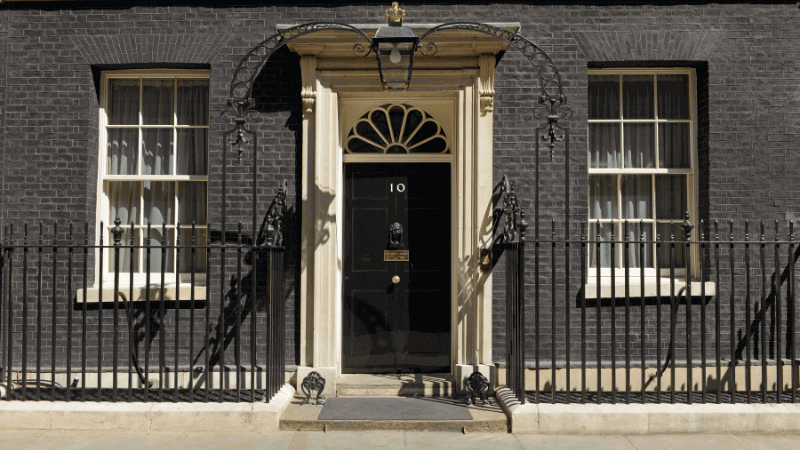Categories
NEWS: Spring Budget 2025 - How it Could Affect Your Mortgage

This year’s Spring Statement unfolded on Wednesday 26th March, and the British public are keen to understand how the latest economic measures will impact our finances.
Chancellor Rachel Reeves pledged to maintain stability by limiting major fiscal changes to a single annual Budget. The results of the anticipated Spring Statement have fuelled further speculation around the country’s finances.
During the statement, Reeves emphasised that the current government is still working to stabilise the lasting impacts of the cost-of-living crisis brought on by Liz Truss’s government.
While the current choices are poised to increase the country's GDP in the long term, the public has withstood similar claims from former Prime Minister Rishi Sunak’s administration. Many Britons will likely remain skeptical until any changes are seen.
While short-term financial pressures remain, the Office for Budget Responsibility (OBR) forecasts suggest that economic growth will pick up from 2026 onwards. Historically, periods of economic expansion have led to stronger job markets, wage increases, and better financial stability for households. If these projections hold, we could see an improved cost-of-living environment in the coming years.
So far, economic growth has been incremental, but COVID-19, the Russia-Ukraine war, and brewing trade wars surrounding the US seem to have the odds stacked against any major progress.
In this article, we'll discuss the main changes proposed in the Spring Statement, how they tie into the UK's economy and what it means for your finances.
Related: Best Place to Invest in Property 2024 Revealed

In This Guide:
2025 Spring Statement - The Key Takeaways
How Will These Changes Affect My Mortgage?
2025 Spring Statement - The Key Takeaways
What were the outcomes of Wednesday’s Spring Statement, and how might they affect the average Briton?
Welfare Cuts and Impact
The government is cutting welfare by £4.8bn. This is predicted to affect around 3.2 million households, with an average loss of £1,720 per year.
Universal Credit’s health element will be frozen, and 2.25 million people will each lose approximately £500 a year. Future Universal Credit recipients are projected to be down £3,000 per year.
The primary changes include stricter PIP criteria, limiting who qualifies for support. Reeves asserted that this choice aims to reduce a perceived pipeline from education to relying on benefits. To aid this, the government is investing £1b into employment support and a further £400m into job centres.
Other government members agreed that this could help encourage more young people into full-time employment, but other MPs have also criticised it, claiming that cuts to benefits don't align with Labour's principles and could negatively affect the economy.
Government’s Justification & Fiscal Focus
Chancellor Rachel Reeves defended the cuts as necessary to stabilise public finances amid rising borrowing costs.
The cuts are part of a £14bn package designed to restore fiscal headroom and prevent economic instability. The government is prioritising reducing national debt and aims to meet its self-imposed fiscal rules.
The good news is that while the OBR halved the 2025’s GDP growth forecast from 2% to 1%, the country’s GPD is expected to grow in the next few years. Economic growth is predicted to reach 1.9% in 2026, 1.8% in 2027, and 1.7% in 2028.
Public sector financial liabilities will fall to 82.7% of GDP by 2030 and Inflation is expected to drop to 2% by 2027, in line with the Bank of England’s target.
The government argues that, despite the short-term sting, its policies will drive long-term economic stability. The OBR believes Labour’s planning reforms will boost GDP by 0.2% in 2029 and 0.4% by 2030.
The success of these policies will depend on whether the public sees real change. This is particularly the case for businesses and low-income communities. It's likely that the sooner we see improvements to the economy and overall living costs, the more public discontent will settle.
Find the Perfect Mortgage
Spending & Policy Announcements
There have been claims that the current government is trying to shoehorn austerity into its policies as a means to tie up financial loose ends, but the need to cover overhead is primarily fuelled by the government’s spending.
Defence spending will rise to 2.5% of GDP by 2027, funded by cuts to international aid. Capital spending will increase by £2bn per year, with a total of £100bn invested in growth initiatives like tackling the housing crisis.
The government also plans to cut civil service costs by 15%, saving £2.2bn by 2030. NHS England restructuring will allow savings to be redirected into patient care.
A number of charities and Labour MPs oppose the cuts, arguing they will increase child poverty and hurt the vulnerable. While these changes will be felt by lower- to middle-income communities, it’s also worth noting that the 2024 Autumn Budget already included a number of legislative changes aimed at higher earners.
But critics do warn that reducing benefits won’t necessarily push people into work. A number of those receiving PIP are already working. PIP is not a benefit aimed at those seeking employment but instead serves as financial support for disability-related expenses. Cuts to additional financial support for individuals with disabilities could affect their ability to work.
Not three hours after the Statement, Donald Trump announced tariffs on car imports from outside the US. This will undoubtedly stir further doubt when it comes to international trade. The increase in expenses could pontentially mean further tax rises in this year’s Autumn Budget.
How could this impact the economy and the money in your pocket?
Affordability and Buyer Confidence Under Pressure
The OBR has downgraded GDP growth forecasts for 2025 due to weak business investment and consumer spending constraints. A wider economic slowdown would have a ripple effect on the property market, making lenders more cautious about offering competitive mortgage products.
Lenders could tighten affordability criteria in the face of high borrowing costs and weak business sentiments. This would make it harder for first-time buyers to enter the market and strain affordability for a number of buyers.
If disposable income shrinks, demand for property may wane, slowing the housing market. This will likely affect house prices, leading to a slump like it did in 2023.
Business expenses are increasing. The financial burden could affect wage growth and stop businesses from hiring.
Reeves' commitment to spending cuts over tax rises means pressure on public services, including local government and the NHS.
The Impact on the Rental Market
Government welfare reforms, including stricter eligibility for disability benefits and cuts to support for under-22s, may prevent some younger people from moving into rental accommodation, reducing demand in certain areas. On the flip side, tighter mortgage affordability could force more would-be buyers to remain in rental housing, sustaining high rents.
Landlords could face increased financial strain if tenants struggle to meet rent payments, potentially leading to more evictions or forced property sales. While demand in the rental sector is likely to remain strong in the short term, affordability issues could create instability in the buy-to-let market.

What to Expect Going Forward
With public borrowing exceeding expectations and the economic climate relatively unpredictable, consumer confidence isn’t high.
Businesses are bracing for the upcoming changes to Employee National Insurance contributions. The property market is expected to see a minor downturn after the changes to Stamp Duty come into effect, and trade relations with the US remain tense.
Those most likely to feel the immediate effects of the Statement will be young people, lower to middle income communities, and individuals using PIP or Universal Credit.
In terms of property, these changes are most likely to impact the rental market, potentially preventing some young people from moving out of their parents’ homes and could also make it more difficult for some potential first-time buyers or young families from getting on the property ladder.
But the bigger picture is that if these choices pay off, we’ll be well on our way to slow and steady economic growth. Until then, a good portion of the public could be hit with cuts or sneaky increases to their tax burden, and this is dominating the headlines.
Any ongoing financial pressures could force targeted tax increases (which they have pledged not to do) or further spending cuts. The government is likely to revisit its fiscal strategy later in the year for the Autumn Budget.
If the OBR’s projections are correct, the majority of workers will have more disposable income towards the end of this year. If the government can pull it off, they will likely be forgiven for their legislation choices over the past six months.
How Will These Changes Affect My Mortgage?
For the majority of individuals planning to buy property this year, these changes should have a relatively minor ripple effect on the wider economy. However, once the Stamp Duty changes are applied, buying a home will become more expensive, and business expenses remain challenging, which could affect salaries.
However, these outcomes are related to changes made in last year's Autumn Budget, not the Spring Statement. Buyers can benefit from more affordable mortgage rates thanks to three reductions in the Bank of England base rate in the past year.
Growth has been limited, but the housing market, particularly, has been stable, and house prices are recovering. Buy-to-let investors and those undertaking renovation projects will likely have to be more selective in their practices, as it's becoming harder to turn a profit in these sectors. With the right guidance and planning, it is still possible.
The landscape for residential buyers is more positive than it has been since 2022, before the cost-of-living crisis.
2025's current economic outlook is definitely a mixed bag, but the long-term projections for the UK are hopeful. For those wondering how to get the most out of their mortgage this year, it's worth speaking to an experienced broker who can guide you through the process and match you with the most suitable deal.
What Do the Experts Say?
Oliver Roylance-Smith
Director & Co-Founder
Related: Autumn Budget 2024 - How it Affects the Property Market

Need Mortgage Advice?
Whether you’re looking to buy a home or you’re an investor looking to build your portfolio, we can guide you through the process.
Working with an experienced broker can help you get the most out of your mortgage. At Clifton Private Finance, we have longstanding relationships with high street, private and specialist lenders across the market.
We have access to market-leading rates and can get you the best deal for your unique circumstances.
To see what we can do for you, call us at 0203 900 4322 or book a free consultation below.









